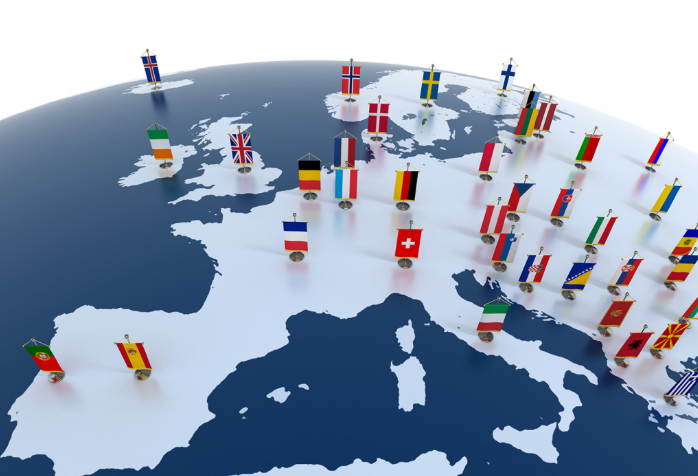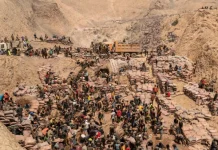Nine years ago, my teacher asked our class a simple yet profound question: What is the world’s largest religion? A room full of over-enthusiastic teenagers erupted with answers, some said Christianity, others said Islam. Then, one student shouted at the top of his lungs, “Sir, humanity!” Our teacher pointed to him, and said, “Yes, humanity. Humanity is the largest religion in the world, one that binds every single one of us together, regardless of any apparent distinction.” He went on to explain how every person on this planet is connected through this “religion of humanity.” In that moment we all believed him but like many beliefs of youthful idealism, this too didn’t stand the test of time.
On paper, humanity may still appear to be leading. But the cold, hard truth is that in today’s world, nationalism has become the world’s largest religion. Its forms may differ in ideology, focus, and expression but the core remains the same. On the surface, nationalism is just another political ideology, one that fosters a sense of identity and unity among people.
But over the last century, nationalist ideologies have continuously reshaped the world order, often through violence and aggression. Whether it was Hitler’s extreme ethnic prejudice or expansionist ambitions, or the colonial pursuits of Britain, France, and other imperial powers, at the heart of it, it was nationalism, unfolding in all its forms.
As the 21st century ushered in new trends across nearly every aspect of life, it also witnessed the rise of distinct and increasingly aggressive brands of nationalism. One such brand is Modi’s brand of nationalism; which India has been carefully cultivating for years. Its manifestations can be seen in the Citizenship Amendment Act and the abrogation of Article 370, which stripped Kashmir of its special status, all while ignoring the human suffering these policies have caused on both sides of the border.
Every now and then, the fruits of this nationalist project are hurled across the border, feeding regional tensions. The recent standoff between India and Pakistan is a stark example of nationalist leaders advancing their agendas to satisfy an ever-growing nationalist appetite. Another strain of nationalism is currently on full display in Benjamin Netanyahu’s Israel, where it has fueled unprecedented casualties, widespread destruction, and a deepening humanitarian crisis in Palestine.
In both cases, toxic nationalism has overridden the most fundamental human emotion: empathy. The devastation and loss of life, homes, dignity, and basic rights that we see happening right now in the world serves as a grim reminder of what unfolds when “toxic nationalism” is allowed to take root. It won’t be an understatement to say that when nationalism becomes toxic, humanity is the first casualty.
Today, as toxic nationalism is again shaping the world, what we need right now is a shift of narrative, a more humane one. Empathy – the ability to understand suffering of other at a personal level and the core value of humanity – must guide our choices. The true test of any nation’s greatness is in its capacity for compassion, justice, and respect for human dignity. Where borders, flags and ideologies define our identities, it should never come at the expense of compassion and the recognition of our common heritage of humanity.
Imagine a world where the first response to tragedy is not to ask, ‘Are they one of us?’ but rather, ‘How can we help?’ And we have witnessed countless stories of ordinary people reaching across divides – volunteers delivering aid in war zones, doctors treating patients regardless of nationality, and activists demanding justice for all. These acts remind us that the bonds of humanity can, and do, transcend the barriers of nationalism.
Despite all its turmoil, a more compassionate and empathetic world is possible only if we choose to make humanity our highest calling.
BY: Writer Khadija Almus Khanum, a practicing lawyer, is based in Islamabad.
Disclaimer: Views expressed by writers in this section are their own and do not necessarily reflect The Times Union‘ point of view








